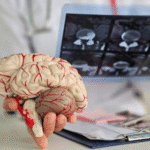When tackling liver diseases, internists play a crucial role. They manage complex cases and guide patients through treatment. Internists coordinate care, provide insights, and monitor progress. Their expertise is essential for accurate diagnosis and effective treatment. From cirrhosis to hepatitis, internists navigate the challenges of liver disease. Just as specialists address Boynton Beach skin tags with care, internists treat liver concerns with precision. Understanding the value of internists empowers informed health decisions.
Understanding Liver Diseases
Liver diseases include a range of conditions. Common ones are cirrhosis, hepatitis, and fatty liver disease. These conditions can severely impact health and quality of life. The liver is vital for detoxification, metabolism, and digestion. Damage to the liver can lead to serious health issues that require timely intervention.
What Internists Do
Internists are physicians who specialize in internal medicine. They focus on diagnosing and treating a wide range of conditions. In liver disease, their role is significant. They assess symptoms, conduct tests, and develop treatment plans. Internists work closely with liver specialists and other healthcare providers to ensure comprehensive care.
Coordination of Care
Internists act as coordinators of patient care. They bring together various healthcare professionals to ensure effective treatment. By managing different aspects of care, they help streamline the treatment process. This approach reduces the likelihood of complications and supports better outcomes.
Key Responsibilities of Internists
- Diagnosis: Conducting thorough assessments to identify liver conditions.
- Treatment Planning: Developing personalized treatment plans based on patient needs.
- Monitoring: Regularly checking patient progress and adjusting treatments as necessary.
Importance of Early Diagnosis
Early diagnosis is crucial in the treatment of liver diseases. Internists are adept at recognizing early signs and symptoms. By diagnosing conditions early, they can initiate treatments that prevent complications. Early intervention often results in better health outcomes for patients.
Supporting Patient Education
Internists also play a role in patient education. They provide information on lifestyle changes, medication management, and follow-up care. Educated patients are more likely to adhere to treatment plans and make informed health decisions.
Table: Common Liver Diseases and Internist Involvement
| Liver Disease | Internist’s Role |
| Cirrhosis | Manage symptoms, monitor liver function, coordinate with specialists |
| Hepatitis | Diagnose type, initiate antiviral therapy, educate on transmission prevention |
| Fatty Liver Disease | Promote lifestyle changes, monitor progress, address metabolic issues |
Advocating for Comprehensive Care
Internists advocate for comprehensive care. They understand the interconnected nature of health issues. By addressing co-existing conditions, they enhance overall health. This holistic approach not only treats liver disease but improves patient well-being.
Collaboration with Specialists
Internists often collaborate with hepatologists and other specialists. This teamwork ensures that patients receive the most advanced and effective treatments. The combined expertise leads to improved management of complex liver conditions.
Conclusion
Internists are vital in the treatment of liver diseases. Their expertise, coordination, and patient-centered approach are crucial. By working with various healthcare providers, they ensure comprehensive care. To learn more about the role of internists in liver disease, visit the National Institute of Diabetes and Digestive and Kidney Diseases or the MedlinePlus Liver Diseases resources. Understanding their role helps in making informed decisions about liver health. Internists remain a cornerstone in delivering quality care for liver diseases.














